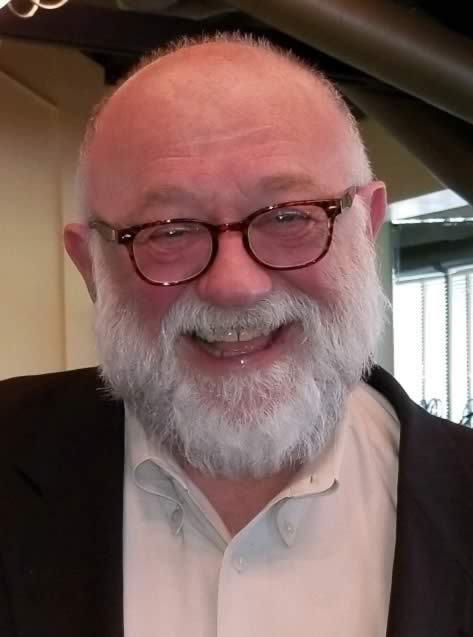
Commentary
By John A. Ostenburg
Park Forest, IL-(ENEWSPF)- Over the last few weeks, more than a few Park Foresters have given lots of time and discussion to the potential demise of the Committee for Non-Partisan Local Government, a volunteer group that has devoted itself for nearly seven decades to the vigorous work of assuring that Park Forest’s municipal elections are void of partisanship.
To meet its goal, the committee has held fast to three fundamental activities for every election of persons to serve on the Park Forest Village Board and the Park Forest Library Board: (1) candidates are asked to sign a pledge that they will not engage in any form of slating for the election in which they are running; (2) volunteers from the committee collect campaign statements from each of the candidates and print them in a brochure that is circulated to voters, at no cost to the candidates; and (3) the committee organizes gatherings where candidates will meet with local citizens, answer questions, and hopefully earn enough votes to be elected.
Of late, however, it has been increasingly more difficult to find volunteers to do the work of the committee, and the situation was exacerbated with the recent unexpected death of Al Sturges, the local resident who has been the strength of the organization almost since his arrival in Park Forest in 1962. Before his sudden passing, Al was reaching out to a wide variety of others in the Village seeking their ideas and involvement and explaining that almost all of the volunteers doing the work of the committee had decided it was time to quit and he needed some new workers.
Park Forest is a unique community as regards its local government. While some citizens find reason to criticize what the local elected officials do – Taxes are too high! Streets have too many potholes! Our young people must have more recreational services! We need more commerce, especially a grocery store! – the fact remains that Park Forest long has held the admiration of many other municipalities for the efficient way that government operates and for how so many of the deficiencies common elsewhere are nary to be found.
Non-Partisan Elections a Factor in Park Forest’s Success
Any analysis of how things are done in Park Forest will uncover three phenomena principally responsible for the municipality’s success as a paradigm for good government: (1) the non-partisan nature of elections, (2) strict adherence to the council-manager form, and (3) the well-structured absence of any nepotism or patronage in hiring of employees. These elements are the three-legged stool that supports good government in Park Forest. Remove any of the three legs and the stool likely will topple over. Each contributes to the stability that’s found at Village Hall.
Obviously, as regards the first of these, the Non-Partisan Committee has played an important role. To underscore the value of keeping some form of the committee active, we need to consider why non-partisanship is so important to local government. The basic reason is, it prevents the slating of candidates in local elections. Holding public forums and printing a brochure with candidate information are of value, but it’s really the preventing of slating that is most important to the committee’s work.
When candidates run on a slate (or part of a “political party”), they too often become more committed to the stands advanced by the slate than to careful consideration of the issues; one need only look at what too often happens at federal or state levels to see such problems in action. While local governmental slates most commonly are not the traditional Democratic Party or Republican Party, but rather such nomenclatures as Good Government Party or Community First Party, or something similar, the problems of adhering to positions advanced by the slate and not based on personal judgment are just as jarring. Many suburban cities and towns often find themselves ruled by a divided municipal council because of such partisan divisions among the elected officials. Fortunately, Park Forest has never faced such a problem: many times individual trustees will disagree on an issue but those disagreements will be based on personal evaluation of the matter at hand and not because of commitment to a position advanced by a political slate.
The other two principles of good government, council-manager form and no hiring of relatives or political cronies, have been just as important to the well-being of Park Forest over the years but fortunately, both are controlled by local ordinance. Non-partisanship, on the other hand, is simply a tradition that has been advanced by volunteer citizens themselves, with agreement from those seeking elected office. It is, therefore, more vulnerable and in greater need of protection. If the Non-Partisan Committee were no longer to exist, where would that protection be found? Does the Village Board have juridical power to mandate non-partisanship by ordinance? Might a referendum approved by the local citizenry codify its legitimacy? Such questions need to be answered and then some formal course of action needs to take place. The Village of Park Forest cannot afford to face a wobbly future by the absence of one of the legs of its stool of stability.
An interview with John Ostenburg on the Non-Partisan Committee and the benefits of non-partisanship:
John A. Ostenburg retired in 2019 after 20 years as mayor of Park Forest, Illinois. He previously served in the Illinois House of Representatives, and before becoming mayor, served seven years as a member of the Park Forest municipal council.








